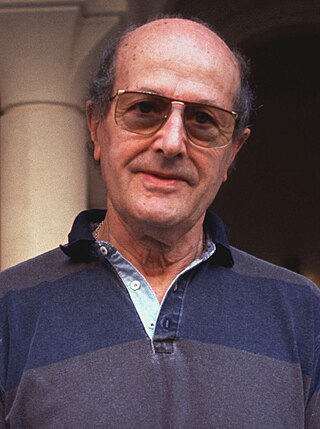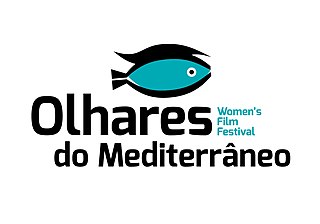José Cardoso was a Portuguese author of short stories, novels, plays, and political satire.

Manoel Cândido Pinto de Oliveira was a Portuguese film director and screenwriter born in Cedofeita, Porto. He first began making films in 1927, when he and some friends attempted to make a film about World War I. In 1931, he completed his first film Douro, Faina Fluvial, a documentary about his home city Porto made in the city-symphony genre. He made his feature film debut in 1942 with Aniki-Bóbó and continued to make shorts and documentaries for the next 30 years, gaining a minimal amount of recognition without being considered a major world film director.

João Manuel Relvas Leopoldo Botelho is a Portuguese film director.
João Mário Lourenço Bagão Grilo is a Portuguese film director, author and professor, born in Figueira da Foz. He attended economics at the University of Coimbra but dropped out. In 1983, he graduated in sociology at Lisbon's ISCTE and in 1994 earned a Ph.D. in communication sciences from the NOVA University Lisbon. He is a full professor in the Department of Communication Studies at the NOVA University Lisbon, where, among other courses, he teaches Filmology and Film Direction.

Vila Franca de Xira is a city and municipality in the Lisbon District in Portugal. The population in 2021 was 137,659, in an area of 318.19 km2.

The Cinema of Portugal started with the birth of the medium in the late 19th century. Cinema was introduced in Portugal in 1896 with the screening of foreign films and the first Portuguese film was Saída do Pessoal Operário da Fábrica Confiança, made in the same year. The first movie theater opened in 1904 and the first scripted Portuguese film was O Rapto de Uma Actriz (1907). The first all-talking sound film, A Severa, was made in 1931. Starting in 1933, with A Canção de Lisboa, the Golden Age would last the next two decades, with films such as O Pátio das Cantigas (1942) and A Menina da Rádio (1944). Aniki-Bóbó (1942), Manoel de Oliveira's first feature film, marked a milestone, with a realist style predating Italian neorealism by a few years. In the 1950s the industry stagnated. The early 1960s saw the birth of the Cinema Novo movement, showing realism in film, in the vein of Italian neorealism and the French New Wave, with films like Dom Roberto (1962) and Os Verdes Anos (1963). The movement became particularly relevant after the Carnation Revolution of 1974. In 1989, João César Monteiro's Recordações da Casa Amarela won the Silver Lion at the Venice Film Festival and in 2009, João Salaviza's Arena won the Short Film Palme d'Or at the Cannes Film Festival. Several other Portuguese films have been in competition for major film awards like the Palme d'Or and the Golden Bear. João Sete Sete (2006) was the first Portuguese animated feature film. Portuguese cinema is significantly supported by the State, with the government's Instituto do Cinema e do Audiovisual giving films financial support.
Ribeirinho, stage name of Francisco Carlos Lopes Ribeiro was a Portuguese actor and director.
Joaquim Sapinho is a Portuguese film director. Founder of production company Rosa Filmes, he is considered to be part of The School of Reis film family.

Bruno de Almeida is an independent filmmaker whose body of work navigates between fiction and documentaries. He is also a composer. He is New York City and Lisbon-based.
A Painting of Roses is a short documentary by Miguel Ribeiro.
Gypsy is a short feature film directed by David Bonneville. It premiered at Locarno and was SXSW Grand Jury Award nominee. The film was funded by the ICA - Portuguese Film Institute / RTP and produced by Bárbara Valentina and Fernando Vendrell.

Olhares do Mediterrâneo - Women's Film Festival is an international film festival of films made by Mediterranean women directors. The 8th edition of the Festival took place in Lisbon, Portugal, on November 10-14 2021, at Cinema São Jorge.

Gabriel Mascaro is a Brazilian visual artist and film director.

The 66th Berlin International Film Festival was held from 11 to 21 February 2016, with American actress Meryl Streep as the president of the jury. The Honorary Golden Bear for lifetime achievement was presented to German cinematographer Michael Ballhaus.

Frames – Portuguese Film Festival is a film festival dedicated to Portuguese cinema, taking place since 2013 in the Swedish cities of Stockholm, Västerås and Gothenburg.
Susana de Sousa Dias is a Portuguese independent filmmaker.
Ciomara Otoniela Morais, is an Angola-born Portuguese actress with a Macanese descendant. Morais is best known as the director of the films Querida Preciosa, All Is Well and A Ilha dos Cães.
Manuel Carvalheiro was a Portuguese filmmaker, documentary filmmaker, screenwriter, independent film producer, essayist, columnist and film critic. He was the first Portuguese film theorist.
Maria Margarida Gil Lopes' is a Portuguese filmmaker, teacher and artist. She has been president of the Association of Portuguese Directors. She collaborated with and was married to the director, actor and film critic, João César Monteiro.









